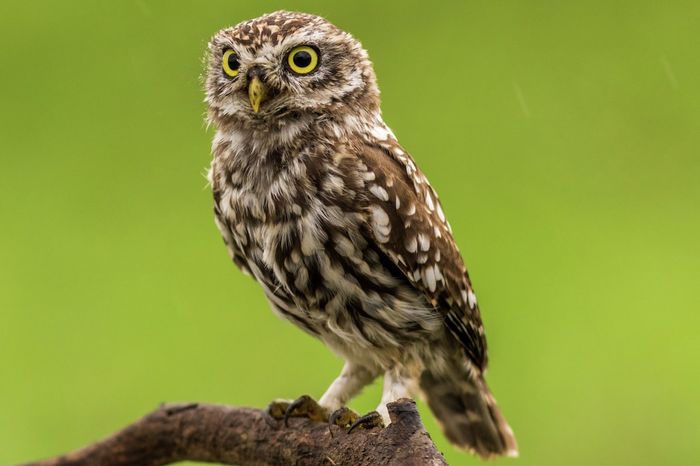Goldcrests, gadwalls, and garden warblers: A (swan) dive into the realm of Cambridge birdwatching
Joe Parham illustrates why you should step beyond the lecture theatre and venture into the avian world

From supervisions on the Byzantine Empire to lectures on the discovery of cell cycle regulation, Cambridge offers an opportunity to indulge in rich intellectual stimulation. However, outside the confines of our colleges and lecture theatres (or in my case, the laboratory) lies one of the best places in the UK to explore birdlife – Cambridgeshire.
Situated in the south-east of England, surrounded by the Fens, with the Norfolk coast to the east and plenty of local nature reserves, Cambridge offers an escape from the pressures of academic life through explorations into the natural world.
Birds are pretty amazing. Almost all species found in the UK are at least somewhat migratory. Classic examples such as swallows and swifts will be synonymous with the term “migration” to many, but even some of our most familiar species migrate to and from the UK in huge numbers.
“Cambridge offers an escape from the pressures of academic life through explorations into the natural world”
Autumn and winter are two of the best seasons for birdwatching in the city, as many species that have migrated here for the colder months stop off in green areas to feed and recover from long voyages. Robins, blackbirds and goldcrests flood into the UK in autumn, along with classic winter migrants like redwings, fieldfares and bramblings – all of these species can be seen just a short walk from the city centre. An evening walk in November or early December is sure to produce the “tseep” calls of migrating redwings, flying overhead in the darkness.

A break between lectures is a prime occasion to spend some time in nature. If you need a brief escape, woodlands such as Paradise LNR and Grantchester Meadows can provide ample opportunity to see some vibrant species. Kingfishers are common, often seen fishing (as one might expect!) along the river, while bullfinches dot the bushes with colour. The more trained ear can even pick out the calls of the migrant lesser redpoll and siskin as they move between the alders – even an amateur knowledge of these bird calls can heighten your birdwatching experience!
If you have more time on your hands, there are plenty of sites further afield which harbour more significant numbers of a diverse range of species. Returning wildfowl come back in autumn, so a visit to any large body of water will produce flocks of recently arrived ducks that have come here to spend the winter. The RSPB Fen Drayton Lakes (a 30-minute bus ride from central Cambridge) harbour important wintering populations of pochard, gadwall, and goldeneye, in addition to scarce breeding birds such as bitterns, cattle egrets and bearded tits.
A high point, such as Castle Mound, can be a great place to enjoy visible migration, or “vis-mig”. If conditions are favourable, a morning spent on a hill can produce hundreds to thousands of migrating birds dancing over your head. Species such as the skylark, meadow pipit, and an array of finches can make for a very enjoyable morning.
Winter is also a great time to uncover rare or scarce birds – some migrate here in small numbers while some are distant treasures, blown off course by strong winds or having migrated the wrong way. I recently stumbled upon a yellow-browed warbler, a small but beautiful migrant from Siberia, calling in the trees at Coe Fen.

Birdwatching is not only about the excitement of seeing a beautiful or rare species: the mental health benefits of birding have been well documented in recent years. Studies have shown that seeing and hearing birds can have a significant impact on boosting mental wellness, so much so that doctors in Shetland have been known to prescribe birdwatching to patients to help alleviate symptoms of poor mental health.
“Doctors in Shetland have been known to prescribe birdwatching”
I’ve always found a walk in nature to be especially calming – sampling the delicate winter colours and invigorating fresh air may just be the perfect way to escape the rigours of Cambridge academic life. If you find yourself with spare time over the next few weeks, I would highly encourage you to head out and see what you can find, you may well be surprised by what beauty lies beyond your doorstep.
 News / Caius clock hand returned nearly 100 years after student prank31 March 2025
News / Caius clock hand returned nearly 100 years after student prank31 March 2025 News / Hundreds of jobs to be cut at Cambridge University Hospitals1 April 2025
News / Hundreds of jobs to be cut at Cambridge University Hospitals1 April 2025 Comment / More Cambridge students should study abroad 1 April 2025
Comment / More Cambridge students should study abroad 1 April 2025 Features / Cloudbusting: happy 10th birthday to the building you’ve never heard of30 March 2025
Features / Cloudbusting: happy 10th birthday to the building you’ve never heard of30 March 2025 Fashion / The Cambridge puffer: a debate 27 March 2025
Fashion / The Cambridge puffer: a debate 27 March 2025




